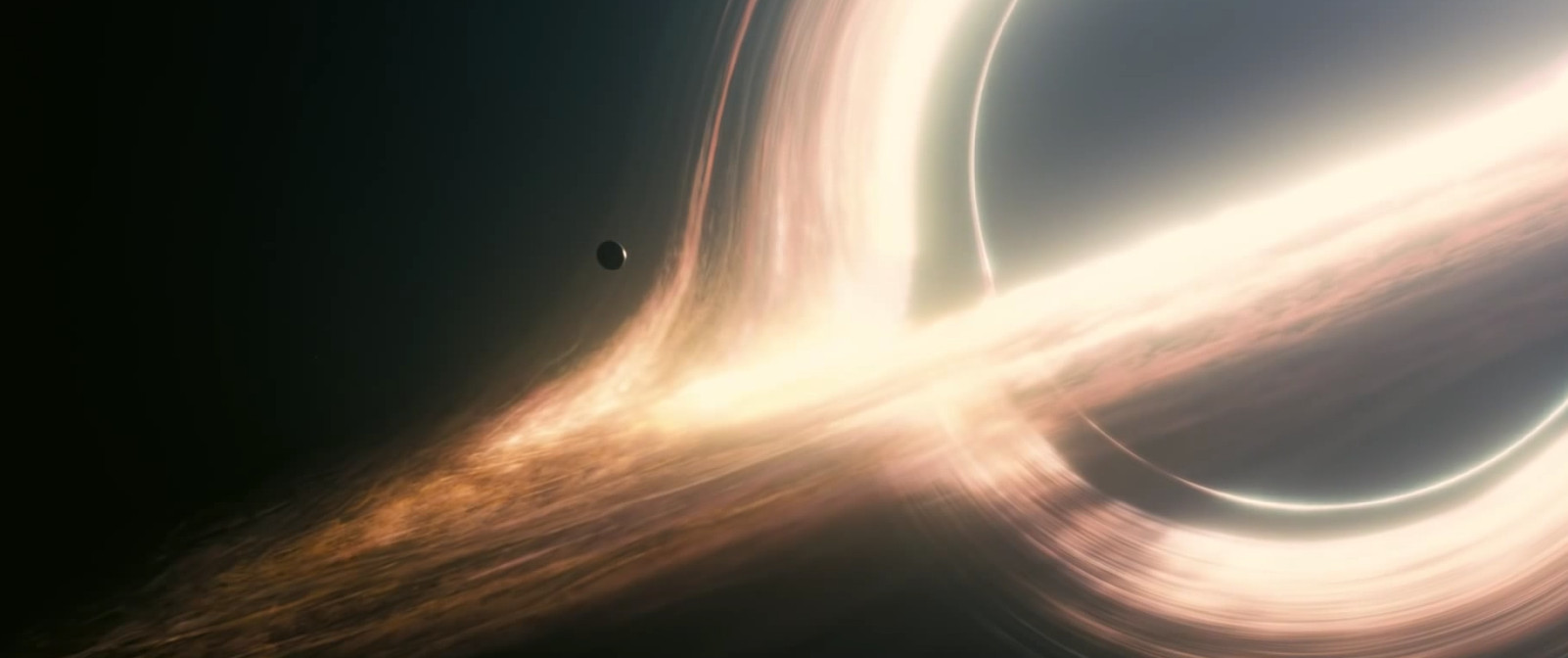That kind of a premise is enough to make 'serious' film lovers groan and roll their eyes, but I'll watch any old shit when it comes to space and I had faith that the Nolan brothers would deliver something special. It's definitely worth watching, but regardless of how good it is let's look at environmental themes shall we?
In interviews Chris Nolan stated that he doesn't believe in 'message films'. Sorry Chris but I've got my message mining pick-axe out and I'm about to lay into what looks to me like a pretty rich seam of metaphor.
What's up with Earth this time?
In the movie it's 40 years in the future and the reason people are keen to get off Earth is because our soil is turning to dust and most of our food crops are dying of disease. You get the impression there have been a series of disasters leading to fewer people being around so space travel is the last thing on people's minds.
Just a reminder: You are insignificant
The film doesn't dwell on whether or not we are responsible for the problems facing the world. Its emphasis seems to be more on the fact that humans are powerless in the face of Earth's inevitable change.
This is an alternative point of view to our current societal thinking where we know we are responsible for trashing our world. It is quite refreshing to have a film that reminds us how insignificant we are in the scheme of things and in this, and many many stylistic ways, Interstellar lends from 2001: a Space Odyssey which has the same effect (it's basically a homage to 2001).
The message as far as Earth goes seemed to be 'be bloody grateful you've have had such a good run at things, because you don't own this planet it owns you'.
The question raised in Interstellar is whether we have grown or will grow to be exclusive of the ecological systems that spawned us (by leaving Earth). If so what would that make us? In a metaphysical sense wouldn't we cease to be an animal? It might sound like a pointless question the answer to which doesn't change anything in reality, but I think how we view ourselves relative to the rest of the living stuff on Earth is crucially important.
Repentance for technological sins
In Interstellar humans have struggled in the face of natural disasters despite all their technology. The response to this seems to be repentance as though the 'excesses of the 20th Century' can be admonished by focusing on farming, living more humbly and not being so brazen as to dream of space travel (like the people Babel repenting after God bitch-slapped their tower).
The commonly accepted view, which Matthew McGonghy's character is thoroughly pissed off about, seems to be that the lunar landings were a propaganda hoax and that space travel was an expensive, decadent waste of time. The Nolan brothers (or at least Johnathon Nolan) lament this attitude in interviews.
In some ways I agree. We've got so many problems of our own making on this planet and almost no prospect of finding another one so why chuck massive amounts of time, money and finite resources into space?
My own outlook on us as a species is that we're just an unusual animal. We still require the all the services nature provides for us and a connection with our natural environment is of proven benefit to our well-being.
But this did bring up the question, what about the future? Not next year, next decade or even in a few centuries time. What happens thousands/millions of years into the future? It's interesting to contemplate, I always assumed we would destroy ourselves, but if we didn't and managed to endure until the sun becomes a huge red giant - ending all life on Earth - will we be extinguished or will we have put enough of our collective effort into forging the path for long distance space travel?

No comments:
Post a Comment